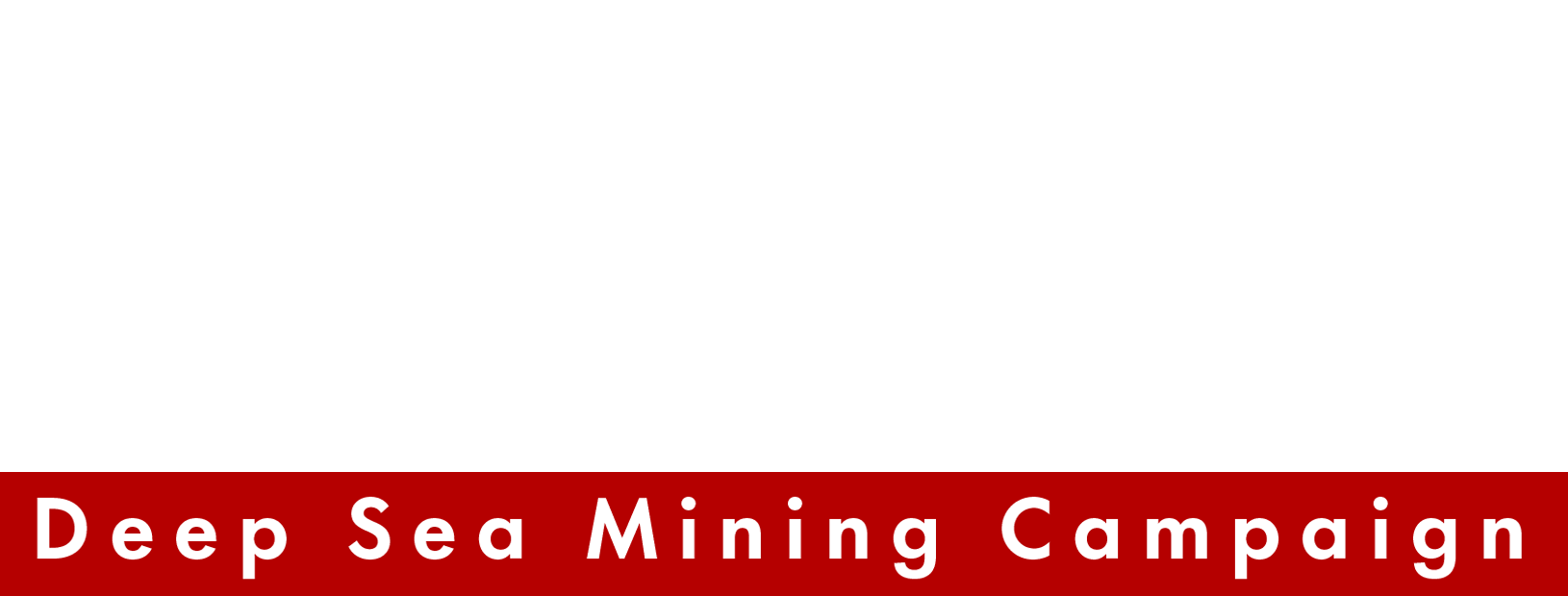MEDIA RELEASE
The Sinking Titanic: The German Government facilitating Deep Sea Mining
NGOs and civil society from Papua New Guinea, Australia, Germany and around the world are calling for a ban on seabed mining. They challenge the development of regulations[1] by the International Sea Bed Authority (ISA) and the German Government’s push to strengthen these regulations this week at a meeting in Berlin[2].
“Enough is enough!” stated Pastor Matei from the Alliance of Solwara Warriors, Papua New Guinea (PNG). The Solwara 1 Project is risky business as it is an experiment and people do not want to be used as guinea pigs. The Bismarck Sea is not a science laboratory for Nautilus Minerals Inc.
“People from the Pacific are custodians of the world’s largest oceans and it is these oceans that connect everyone in the Pacific. The oceans are as important as land. They are sources of food and livelihoods and they are of strong cultural and spiritual importance. Experimental seabed mining threatens this.”
“The demand for a ban on deep sea mining reflects the views of communities in PNG and across the Pacific. Our opposition is strong and growing[3].”
Natalie Lowrey, Deep Sea Mining campaign stated, “The demand by Pacific communities for a ban on this frontier industry is joined by the Deep Sea Mining campaign and leading NGOs in Germany. The development of regulations for deep sea mining is akin to loading more passengers onto a sinking Titanic. Report after report[4] demonstrate that the world’s oceans are already on the brink of peril.”
“Recent research from the MIDAS consortium indicates a concrete risk that deep sea mining would lead to serious irreversible harm. The ISA and the German Government are paving the way for yet another assault upon our oceans – an unprecedented and unnecessary assault.”
“The demand for a ban highlights the need to debate whether we should open up our oceans seabed to mining when alternatives are available. Germany and the EU should promote sustainable sources of minerals. such as urban mining.
Christina Tony, from the Bismarck Ramu Group in PNG said, “In Papua New Guinea and across the Pacific we do not see experimental seabed mining as meeting any of our communities’ needs, nor does it provide a benefit for humankind as a whole. In PNG, and across the world, we already have plenty of land-based mines and they have plenty of problems.”
“Imposing this industry on us is another form of colonisation. By promoting experimental seabed mining, Germany and the EU are complicit in continuing the ‘empire’ tradition in which it believes it should be free to rape and pillage the Pacific for its own profit.”
For more info:
Papua New Guinea:
Pastor Matei Ibak, Alliance of Solwara Warriors (via Christina Tony)
Christina Tony, chrisamoka20@gmail.com +675 70942439, Bismarck Ramu Group
Australia:
Natalie Lowrey, natalie.lowrey@gmail.com +61 421226200, Deep Sea Mining Campaign
NOTES
[1] See submissions by the Deep Sea Mining Campaign: http://www.deepseaminingoutofourdepth.org/wp-content/uploads/Deep-Sea-Mining-Campaign-submission-to-the-ISA-Nov-2016.pdf and Seas At Risk: https://www.isa.org.jm/files/documents/EN/Regs/DraftExpl/Comments/SAR.pdf
[2] Organised by the German Federal Institute for Geosciences and Natural Resources the ‘Towards an ISA Environmental Management Strategy’ workshop is being held in Berlin this week 19-14 March. The meeting aims to progress an ISA Environmental Management Strategy for deep sea mining.
[3] Lutherans Walk 9 days Across Highlands Region Campaigning Against Deep Sea Mining in Papua New Guinea, EMTV; VIDEO: Lutherans Campaign Against Deep Sea Mining in PNG, EMTV online and Caritas PNG Forum call for ban on Sea bed mining
[4] Reports include: World Wildlife Fund (WWF) Reviving the Ocean Economy (2015) and The Living Planet (2016); International Union for Conservation of Nature (IUCN) State of the Ocean (2013) and Explaining Ocean Warming (2016); and the United Nation’s World Ocean Assessment 2016 which is a global inventory of the state of the marine environment and problems threatening to degrade the oceans.

Recent Comments